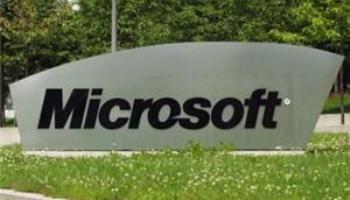

Microsoft unveiled Internet Explorer 9 at a high-profile event in San Francisco, as the company battles tough competition from the likes of Mozilla Firefox and Google Chrome.
Despite the new browser’s streamlined design and more efficient web browsing, however, some of its aspects seem to play into a Microsoft vision of the cloud where traditional operating systems and localised hardware are still front-and-center in the user experience.
Microsoft’s cloud vision is one where rich clients, or devices capable of functioning without a connection to the web or a server, continue to play a major part in the lives of both consumers and enterprise users. That places Microsoft at philosophical odds with companies such as Google, which see a future dominated by devices perpetually connected to the web. Google is developing a browser-based operating system, Chrome OS, which will likely find its way onto netbooks and tablet PCs.
The Microsoft vision features web-centric applications and programs needing to draw on the desktop’s muscle. “Slates and phones are really rich, with some experiences that take place in the browser and some that are not in the browser,” Robert Wahbe, corporate vice president of Microsoft’s Server and Tools Marketing Group, said in a 12 July interview with eWEEK. By providing extra processing power to run software downloaded from the web, he added, “rich devices complement the cloud.”
In many ways, Internet Explorer 9 seems an extension of this philosophy.
For starters, the browser utilises the PC’s underlying hardware, most notably its graphics processor, for accelerated graphics and video. “It makes HD video smoother, colours truer, graphics clearer, and Websites more responsive,” reads a note on Microsoft’s IE9 corporate website.
“Combined with our new JavaScript engine, the web now performs like an application installed directly on your computer.” Microsoft’s “Chakra” JavaScript engine was designed to take advantage of most modern PC’s multiple CPU processing cores.
Second, Internet Explorer 9 is designed to operate in a holistic way with Windows 7. Web pages can be “pinned” to the operating system task bar, where they act like minimised applications. Pinned sites can also offer added functionality when selected, including links and player controls.
Microsoft hopes that Internet Explorer 9’s greater speed, combined with features such as extensive support for HTML5, will allow the browser franchise to maintain its lead. Analytics firm Net Applications estimated Internet Explorer’s July market-share at 60.74 percent, an increase from June’s 60.32 percent, followed by Firefox with 22.91 percent, Chrome with 7.16 percent, Safari with 5.09 percent, and Opera with 2.45 percent.
But Microsoft has also faced privacy concerns related to the browser, after a widely circulated 1 August article in The Wall Street Journal suggested that the Internet Explorer team’s decision to “design…software to automatically thwart common tracking tools” was fiercely resisted by company executives who thought those tools would impede their online-ad selling operation.
Microsoft responded to those privacy concerns with an 1 August posting on The Windows Internet Explorer Weblog, insisting that “browsing the Web is fundamentally an information exchange” and that “your Web browser offers information in order to get information.” That posting also highlighted Internet Explorer’s InPrivate Filtering, which allows users to regulate their privacy settings.
Perhaps aware of those concerns, Microsoft executives at the Internet Explorer 9 unveiling took time to emphasise the new browser’s privacy-related features. “By default, Internet Explorer respects your privacy and doesn’t send your keystrokes to search services,” Dean Hachamovitch, general manager for IE, said during the press conference. “The address bar is obviously respectful of privacy.”
Hachamovitch also touted Internet Explorer 9’s security, including its downloading manager that warns users about potentially malicious downloads with a pop-up window and a list of suggested actions.
American space agency prepares for testing of Boeing's Starliner, to ensure it has two space…
As UK and Europe develop closer military ties, European Commission says it will invest €1.3…
Zuckerberg seeks to revive Facebook's original spirit, as Meta launches Facebook Friends tab, so users…
Notable development for Meta, after appeal against 2021 WhatsApp privacy fine is backed by advisor…
First sign of shake-up under new CEO Lip-Bu Tan? Three Intel board members confirm they…
Trump's nominee for SEC Chairman, Paul Atkins, has pledged a “rational, coherent, and principled approach”…